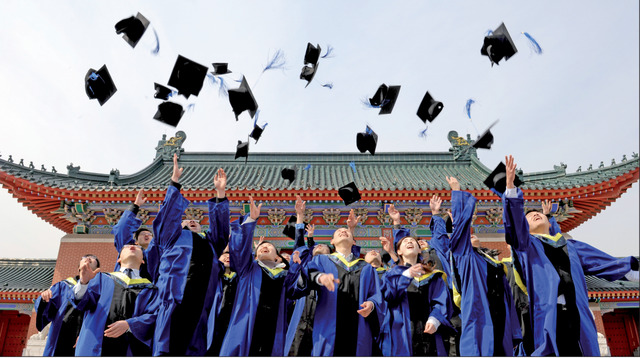Universities seek to balance internationalization, localization

China aims to establish “a certain number” of world-class universities and disciplines by 2020, according to a document released by the State Council in 2015.
At a roundtable conference on internationalization of education and China’s Double First-Class plan hosted by Science and Technology Commission of Ministry of Education on May 25 to 27 in Nanjing, Jiangsu Province, scholars said equal emphasis should be placed on internationalization and localization in order to build world-class universities and disciplines in China.
China’s Double First-Class plan, referring to “world-class universities” and “world-class disciplines,” was approved by the Chinese government in 2016 to inject new vitality into Chinese higher education.
After decades of rapid development, China has taken increasingly rapid steps toward internationalizing its education and has made progress in developing education ideas as well as exploring its own ways, said Yang Shanlin, an academician of the Chinese Academy of Engineering who is also a professor from Hefei University of Technology.
Xu Tao, director-general of the Department of International Cooperation and Exchange under the Ministry of Education, said China has basically formed a comprehensive international pattern of a more complete, multi-layer and extensive education system, while great achievements have been made in the aspects of training high-level professionals, introducing excellent foreign education resources and promoting humanistic exchanges between China and foreign countries.
China has become the world’s largest exporter of students and also an important Asian destination for foreign students. In 2016, 544,500 Chinese students studied overseas and returnees numbered 432,500, while more than 440,000 overseas students from 205 countries and regions were studying in China at the end of 2016.
Chen Jing, a professor at Tsinghua University, said that internationalization should be seen as a focal point for developing a number of world-class universities and disciplines. First-class universities must participate in international competition while staying active and engaged in cutting-edge international academic research, showing the international influence of China’s higher education system, Chen said.
The trend of internationalization of education is irresistible in light of increasing global interconnection and economic globalization, but the internationalization of education has different levels, such as index, mechanism and culture as well as function and value, said Xi Youmin, executive president of Xi’an Jiaotong-Liverpool University.
Though the internationalization of education is undoubtedly important, universities cannot focus too heavily on this aspect to the detriment of others, because Chinese characteristics in universities also matter, Yang said. The standards of world-class universities were proposed and formed within the economic, institutional and social contexts of foreign countries, but China has its own conditions, so simply applying the standards to Chinese universities will not work, Yang said.
The internationalization of higher education should take root in China, highlighting the characteristics of the times and inheriting excellent traditional Chinese culture, said Su Jun, a professor from Tsinghua University.
Wang Guanglu is a reporter at the Chinese Social Sciences Today.

 PRINT
PRINT CLOSE
CLOSE